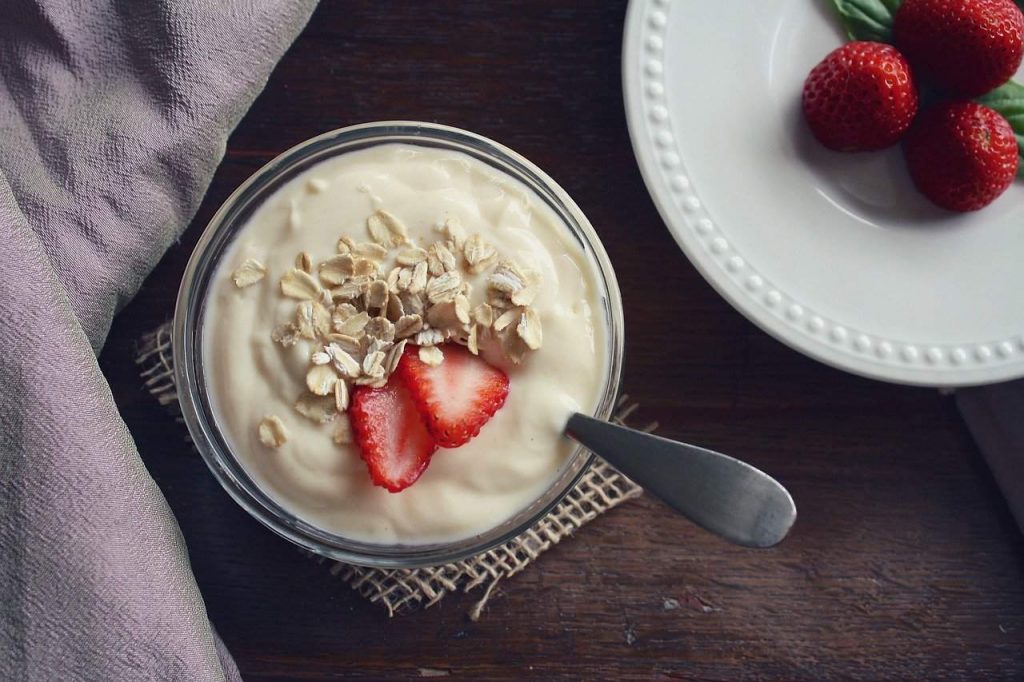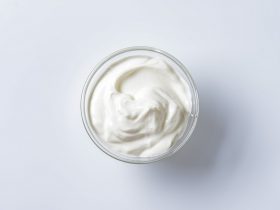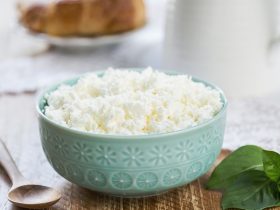Breastfeeding is the foremost way for a child to acquire sufficient nutrients to facilitate the growth and development of the various systems in the body. A mother’s gastrointestinal health or gut health is a crucial factor in the nutrient density of her breast milk.
Breastfeeding mothers can consume probiotics to improve the nutrition of their breast milk. Probiotics will help improve their gut microbiome, which, in turn, will improve the quality of breast milk in terms of the volume of nutrients and probiotics.
This article will define and discuss probiotics and its benefits for both the mother and the infant. It will also highlight specific benefits of probiotics in breast milk for the infant, particularly in terms of improving digestion, growth, and development of their immune systems. Lastly, it will share some of the potential dangers of using probiotic supplements from entry-level brands that can potentially harm the mother and the infant.
What are Probiotics?

Probiotics help in improving the gut microbiome for better digestion and a stronger immune system. As poor lifestyle changes and food choices gradually deplete the quality of the gut microbiome, probiotics replenish the number of good bacteria to provide sufficient balance within the body.
Probiotics are essential for infants to speed up the development of their immune system and facilitate good digestion. Most of the probiotics that infants gain from their mother are during pregnancy and childbirth.
Contact with the vagina during delivery coats newborns with a large number of probiotics. It is also suggested to avoid using cleansing agents for the vagina because it can disrupt the balance of good and bad bacteria.
Two of the most common probiotics that babies have upon childbirth are Bifidobacteria and Lactobacilli. They nourish the good gut bacteria in the intestines and promote healthier digestive and immune systems.
Afterward, the child receives probiotics from their mother’s breast milk. Breast milk contains around 700 different bacteria that include Staphylococcus, Streptococcus, Enterococcus, and the probiotic strains Lactobacillus and Bifidobacterium. In terms of Lactobacillus, breast milk contains three strains namely, Lactobacillus gasseri, Lactobacillus fermentum, and Lactobacillus salivarius.
The mother’s gut microbiome directly affects the volume of probiotics contained within the mother’s breast milk. As such, a mother’s weak microbiome often leads to a weak microbiome for the child.

The entero-mammary pathway hypothesis suggests that nourishing the mother’s body will also nourish the child through breastfeeding. A study in 2014 by Jost et al supported this hypothesis with their data, which showed that maternal gut bacteria reach the breast milk to influence neonatal gut colonization. Changes in diet and lifestyle for the mother can therefore positively affect the child’s immune system.
Intake of natural probiotic-rich foods can help boost the mother’s gut microbiome. Some of the best natural probiotic-rich foods include buttermilk, soft cheese, kefir, and yogurt. For non-dairy choices, plant sources rich in probiotics include kimchi, miso soup, tempeh, naturally fermented pickles (using sea salt and water solution instead of vinegar), sauerkraut, sourdough bread, and kombucha tea.
There are also probiotic supplements on the market that can help provide substantial amounts of probiotics into the body. However, precautions are necessary in terms of the contents of the supplements to avoid any complications for the mother and the child.
Benefits of Probiotics for Breastfeeding Mothers
Intake of probiotics can be beneficial from pregnancy to childbirth. Some probiotics can increase the production of vitamin B in the body, which can minimize the nausea associated with morning sickness (vitamin B6).
For breastfeeding mothers, probiotics can help prevent the development of urinary tract infection (UTI) as well as mastitis (infection due to clogged milk ducts). It can also improve cognitive ability and mood, help lose weight, and prevent coronary heart diseases, as well as control blood pressure. Probiotics can likewise prevent skin rashes due to yeast infection, specifically vaginal yeast infection caused by Candida species.

Probiotics do not directly transfer from the mother to the child. Since probiotics are generally not absorbed systemically, they also are not transferred into the breast milk. A study found that maternal oral supplementation with the probiotic Lactobacillus reuteri did not lead to increased prevalence of the probiotic in the colostrum (Elias et al, 2011).
However, one study found that administration of oral probiotics to breastfeeding mothers increased the anti-inflammatory protective potential of breast milk. Likewise, oral probiotic supplementation during breastfeeding offers an effective protection against atopic skin diseases (Rautava, et al, 2002).
Another study by Baldassarre et al (2016) demonstrated that maternal high-dose, multi-strain probiotic supplementation improved gastrointestinal function in infants.
Prebiotics, on the other hand, are nondigestible food components that stimulate and promote the development of probiotics in the gastrointestinal tract. Breastfeeding mothers can acquire prebiotics from natural plant sources including asparagus, artichoke, bananas, red wine, oatmeal, honey, maple syrup, onions, leeks, legumes, cabbage, and cauliflower.
Benefits of Probiotics for Infants
Gut Health and Gut Microbiome
Probiotics can help improve gut health and gut microbiome for both the mother and the child. It can help repopulate good bacteria for better digestion and a strong immune system.
The human milk oligosaccharides (HMO) present in breastmilk function as prebiotics, promoting the development of good and healthy gut bacteria. It is an indigestible carbohydrate that is selectively fermented by good gut bacteria. It protects the intestines by sharing common epitopes as receptors for pathogens on the infant’s intestinal epithelia, preventing binding of pathogens to epithelial cells and protecting infants from diseases

Digestion
The main role of probiotics is to improve digestion. It is believed to reduce the incidence of infantile colic and regurgitation. The Lactobacillus reuteri strain can help solve digestive problems including acid reflux. Probiotics can also help in digesting carbohydrates and converting it into energy.
In addition, probiotics help in absorbing nutrients and minerals from food and facilitating bowel movement. Lack of probiotics for infants can lead to constipation, regurgitation, and bloating. It can also lead to frequent vomiting.
Usually, these digestive problems can result in infantile colic. Lifestyle and diet changes that can improve the probiotic contents of a mother’s breast milk can help improve the infant’s bowel movement and metabolism. Regular stool frequency with normal consistency are often signs of a healthy gut.
Immune System
One of the most important, yet overlooked, benefits of probiotics is the enhancement of the mother and child’s immune system. Taking in probiotics from natural sources or through high-quality supplements can help reinforce and ensure the mother’s immunity throughout the breastfeeding phase.
Sufficient probiotic concentration in infants can increase the number of good bacteria in the gut for stronger immunity against infections and diseases. This is extremely beneficial for infants given their immature immune system upon childbirth.
Breast milk is one of the preliminary sources of antibodies for infants. Maternal probiotic supplementation increased cytokine patterns in breast milk and secretory Immunoglobulin A (IgA) production in infants (Baldassarre et al, 2016). These cytokines and immunoglobulins help fight against diseases that infants can get from their external environment.

Probiotics in breast milk also have anti-inflammatory properties to counter infections and promote the production of Vitamin B and Vitamin K, which are essential for physical growth and development of the nervous system.
Probiotics can also help prevent the development of eczema. According to Rautava et al (2002), the risk of development of an atopic skin disease during the first 2 years of life in infants whose mothers were given probiotic supplementation was significantly reduced. It can also help prevent the development of more serious gastrointestinal diseases like necrotizing enterocolitis and sepsis in premature infants.
A healthy stream of probiotics for the infant can stimulate the production of folate, which is a type of B-vitamin that promotes growth. It can also help promote faster and healthier development of the brain.
Caution Against Probiotic Supplements
Oral probiotic supplements are generally safe because systemic absorption is rare. Therefore, the risk for systemic infections is low. According to Elias, et al (2011), the estimated risk of developing a blood infection from ingested probiotics is only less than 1 per 1 million users.
However, depending on the probiotic supplement, it can produce several side effects. “Low-quality” probiotic supplements can lead to gastrointestinal issues, including stomach cramps and diarrhea.
Probiotic supplements that contain sweeteners and multi-ingredient powders can cause infections due to bacterial contamination. They can also lead to allergies, especially for supplements that contain lactose and soy.
Some probiotic supplements also market multi-strain probiotics, which can be more harmful than beneficial. Multi-strain probiotics can cause various bacterial strains to fight against one another, depleting the number of good bacteria in the gut microbiome.
Strain incompatibility can also cause necrotizing enterocolitis in infants. As such, single-strain probiotics are often preferred and considered to be more effective for maintaining a balanced and healthy gut microbiome.
Breast milk is usually sufficient in providing nutrition for an infant to facilitate all-around growth and development. Intake of a probiotic supplement is only necessary to ensure sufficient probiotic supply for both the mother and the infant.
Mothers have to be cautious in giving probiotic supplements directly to their infants. Some probiotic supplements can be incompatible with their child’s digestive system and can cause GI tract irritation.
Infants are more susceptible to diseases and infections due to greater gastric permeability caused by low pancreatic and gastric enzymes. To ensure safety, it is best for mothers to nourish their own bodies first, and then pass sufficient and good-quality nutrition to their infant through breast milk.
Concluding Thoughts
Probiotics are known for their benefits on the digestive system. It is often incorporated in various products as a marketing strategy to promote better digestion. However, probiotics also improve immunity against diseases, which can be passed on to an infant through breastfeeding.
Choosing only certified probiotic supplements and natural probiotic sources can help mitigate the risk of bacterial contamination that can harm the mother and the infant. It is always prudent to consult with your physician before taking any medication and to help you find the right supplement for you and your baby.
References
- Jost, T., Lacroix, C., Braegger, C., Rochat, F., & Chassard, C. (2014). Vertical mother-neonate transfer of maternal gut bacteria via breastfeeding. Environmental Microbiology, 16(9), 2891-2904. doi: 10.1111/1462-2920.12238
- Elias, J., Bozzo, P., & Einarson, A. (2011). Are probiotics safe for use during pregnancy and lactation? Canadian Family Physician, 57(3), 299-301. https://www.ncbi.nlm.nih.gov/pmc/articles/PMC3056676/
- Rautava, S., Kalliomäki, M., & Isolauri, E. (2002). Probiotics during pregnancy and breastfeeding might confer immunomodulatory protection against atopic disease in the infant. The Journal of Allergy and Clinical Immunology, 109(1), 119-121. doi: https://doi.org/10.1067/mai.2002.120273
- Baldassarre, M. E., Di Mauro, A., Mastromarino, P., Fanelli, M., Martinelli, D., Urbano, F., Capobianco, D., & Laforgia, N. (2016). Administration of a multi-strain probiotic product to women in the perinatal period differentially affects the breast milk cytokine profile and may have beneficial effects on neonatal gastrointestinal functional symptoms: A randomized clinical trial. Nutrients, 8(11), 677. doi: 10.3390/nu8110677




